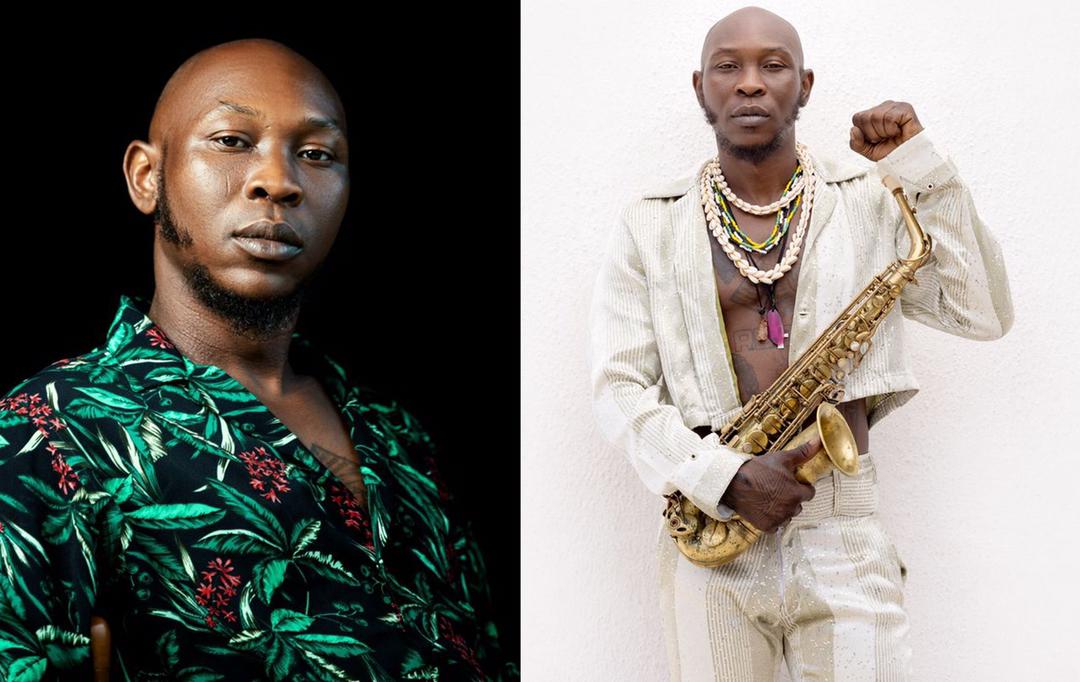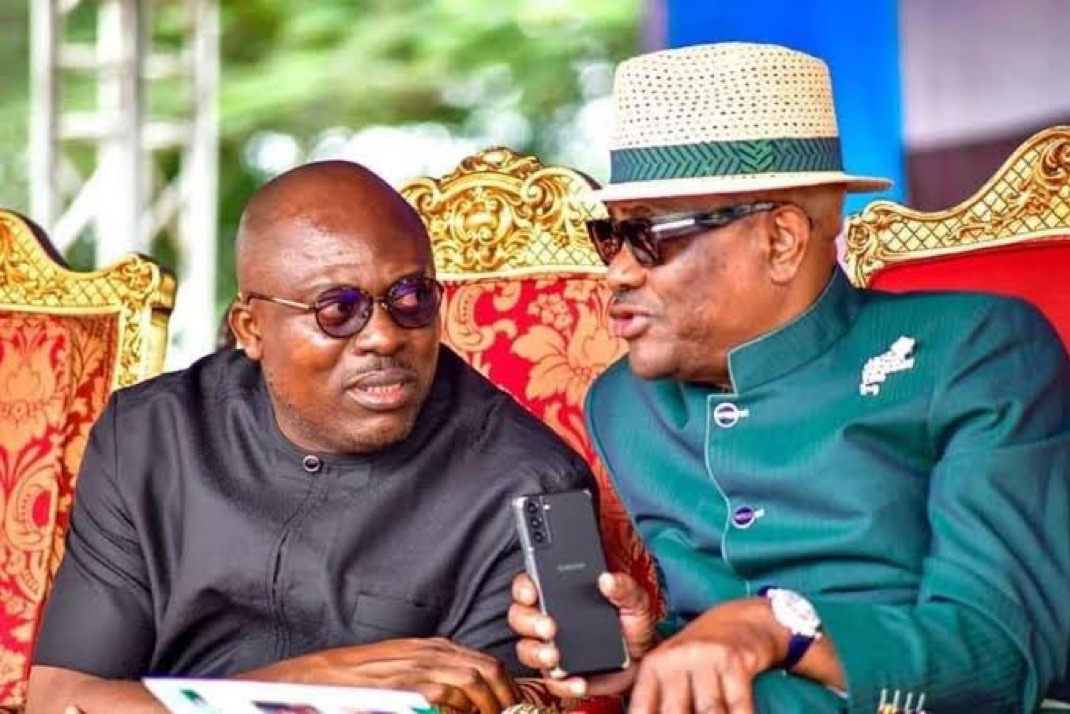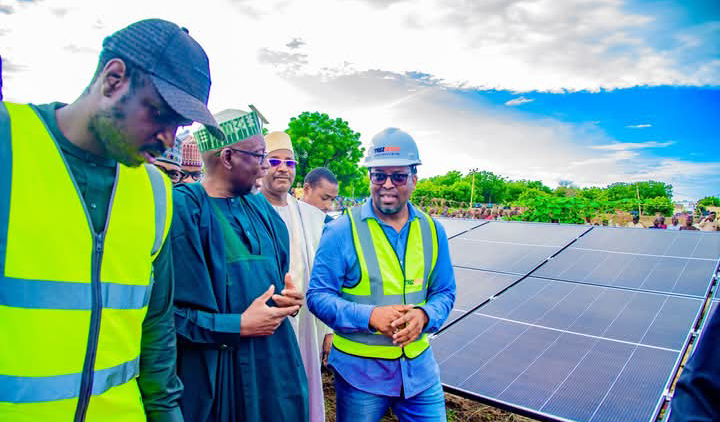
“Buhari Dealt With My Family, But His Death Is No Victory” — Seun Kuti Speaks With Depth and Defiance

Renowned Afrobeat musician and activist Seun Kuti has stirred emotions and sparked debate following his bold remarks on the death of Nigeria’s former President Muhammadu Buhari. Known for never mincing words, Seun, the youngest son of legendary musician Fela Anikulapo Kuti, made a passionate statement that has since resonated deeply across the nation. While many Nigerians responded to Buhari’s death with mixed reactions, ranging from sorrow to perceived closure, Seun Kuti maintained a unique position that both acknowledged personal pain and challenged the prevailing sentiment of poetic justice.
Speaking in a somber tone but with characteristic clarity, Seun Kuti declared, “Buhari dealt with my family, but I don’t see his death at old age as justice or victory.” These words have ricocheted through the media, sparking heated discourse among citizens, political commentators, human rights activists, and even members of the artistic community. While many expected Seun to rejoice or express vindication over the passing of a man whose regime imprisoned his father and brutalized his family, the musician offered a broader reflection that stunned many.
The Kuti family’s clash with Buhari dates back to the mid-1980s when Buhari, then a military head of state, cracked down on dissent and activism. Fela Kuti, a fearless critic of military rule and social injustice, was one of Buhari’s loudest and most persistent adversaries. During Buhari’s draconian rule from 1983 to 1985, Fela was arrested and sentenced to five years in prison under what many international observers and human rights organizations at the time described as politically motivated and unjust circumstances. Seun Kuti was barely two years old when his father was incarcerated. However, the scars of that era have remained deeply etched in the memory of the Kuti household.
According to Seun, the trauma Buhari’s regime inflicted on his family extended beyond the physical arrest. “My mother was thrown from a building. My father was locked up. Our shrine was raided. The pain didn’t leave with time. We lived with it. So no, I don’t find satisfaction in an old man’s passing,” he said in an emotionally charged interview.
The Afrobeat singer, who has continued his father’s legacy of politically conscious music, emphasized that real justice would have been served only if Buhari had faced accountability while alive. “Justice isn’t a slow natural death in a plush hospital. Justice is a man answering for his crimes, facing the families he hurt, being made to understand and reckon with his actions. He didn’t face that. He died a respected statesman. That’s not justice. That’s evasion.”
Many Nigerians took to social media to commend Seun for his maturity and deep sense of justice. Others, however, accused him of harboring personal grudges and refusing to let go of the past. But for Seun, letting go of the past without accountability is akin to forgetting history. “We talk of forgiveness too easily in this country, but forgiveness without truth is just cowardice in disguise,” he added.
Seun also condemned those who were quick to celebrate Buhari’s death with glee or mockery. According to him, their energy is misdirected. “Don’t celebrate the man’s death. Ask yourselves why he was never made to answer for the crimes of his government. That’s the real failure. We let impunity thrive and now we’re dancing on graves. That’s not power, that’s weakness. That’s a failure of our justice system and of our collective memory.”
In his usual Afrobeat style, Seun hinted that his upcoming work might reflect on Nigeria’s long history of political brutality, corruption, and unhealed wounds. He criticized the recycling of leaders and the system that props up impunity. “Today it was Buhari. Tomorrow it’ll be someone else. We’ve seen this script before. They rule, they ruin, they retire, they get state burials. And the people? We carry pain, history, trauma—generation after generation.”
Asked if he ever felt like seeking revenge or retaliation, Seun shook his head. “My fight isn’t personal. It never was. If it were, I’d be celebrating now, right? But I’m not. My fight is for truth, justice, dignity—for Nigeria. I want a system that never again lets anyone do what Buhari did to my father, my mother, my people. That’s the battle. Not celebrating death.”
In the days following his statement, reactions continued to pour in. Prominent figures like human rights lawyer Femi Falana (SAN), who was also a key defender of Fela in the 1980s, commended Seun’s perspective, calling it “one of the most courageous and morally mature responses to an oppressive past.” On the other hand, political loyalists and defenders of Buhari’s legacy accused Seun of being disrespectful and unwilling to move on from the “mistakes” of the past.
But for Seun, the issue is not about moving on—it’s about refusing to let injustice be swept under the carpet. “When you sanitize the past, you curse the future,” he said. “What my family faced was not unique. Many families went through worse. I speak not just for the Kutis, I speak for every Nigerian whose voice was stolen, whose dignity was denied.”
As Nigerians continue to grapple with the legacy of Muhammadu Buhari—both as a military dictator and later as a civilian president—Seun Kuti’s words ring with a rare depth and moral insistence that cuts through the noise. Whether one agrees with him or not, his voice stands as a reminder that history, when left unexamined, doesn’t disappear. It lingers in the silence, grows in the shadows, and returns, again and again, through voices like his.
In a country often pressured into collective amnesia, Seun’s refusal to dance on graves or whitewash history is a powerful act of remembrance. He speaks not from hatred, but from a love for justice, a love that insists on truth, no matter how uncomfortable. And in that truth, perhaps lies Nigeria’s only path to healing.


